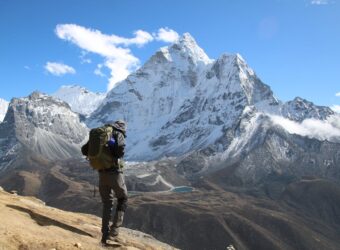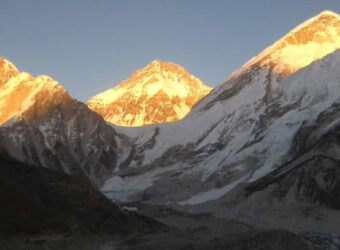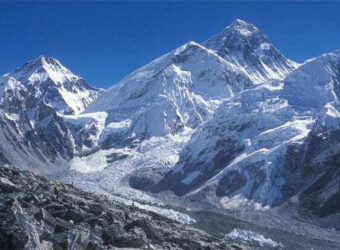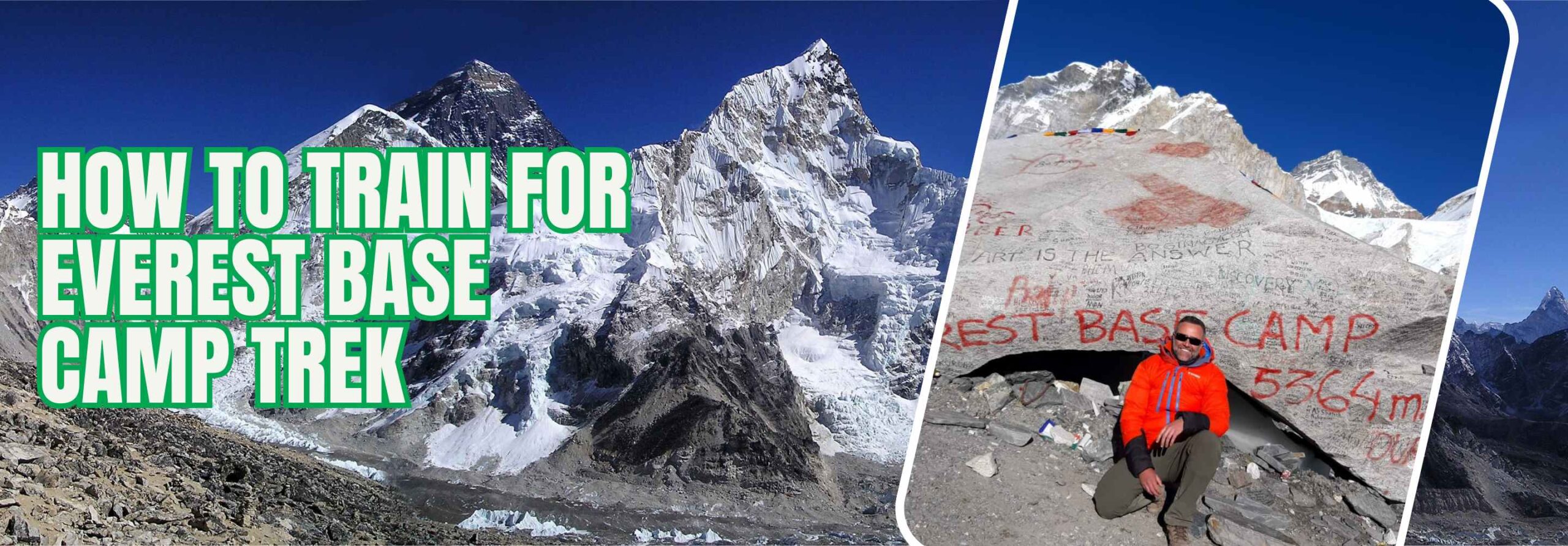
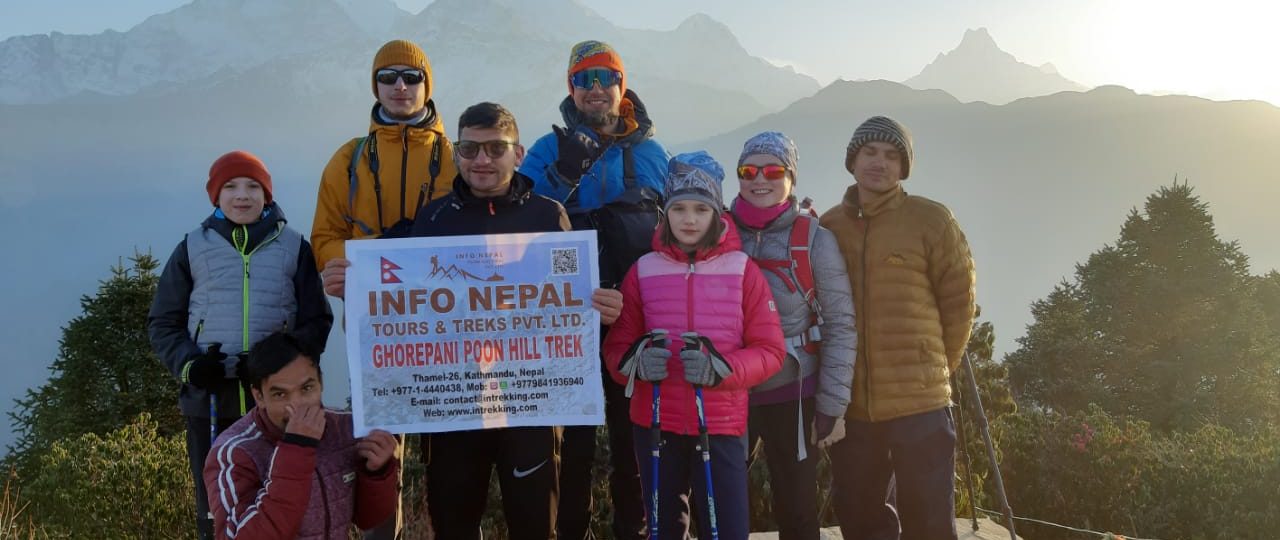 Written By: Rajesh Neupane
Written By: Rajesh Neupane
HOW TO TRAIN FOR EVEREST BASE CAMP TREK?
Enquiry Form
Table Of Content
The Everest Base Camp trek is considered the best trek on the planet. The trek offers excellent perspectives on mighty mountain giants, diverse terrains, alpine forests, rivers, glaciers, and whatnot.
This trek comes with challenges to overcome. Hiking past 130 km distance above 3,000 m in two weeks is not to be taken lightly. Therefore, prior training is a must to enhance your fitness level and a strong mentality.
If you plan to train for Everest Base Camp Trek, you have come to the right place. Here, you will be guided with essential training required to maintain your physical fitness to accomplish the trek.
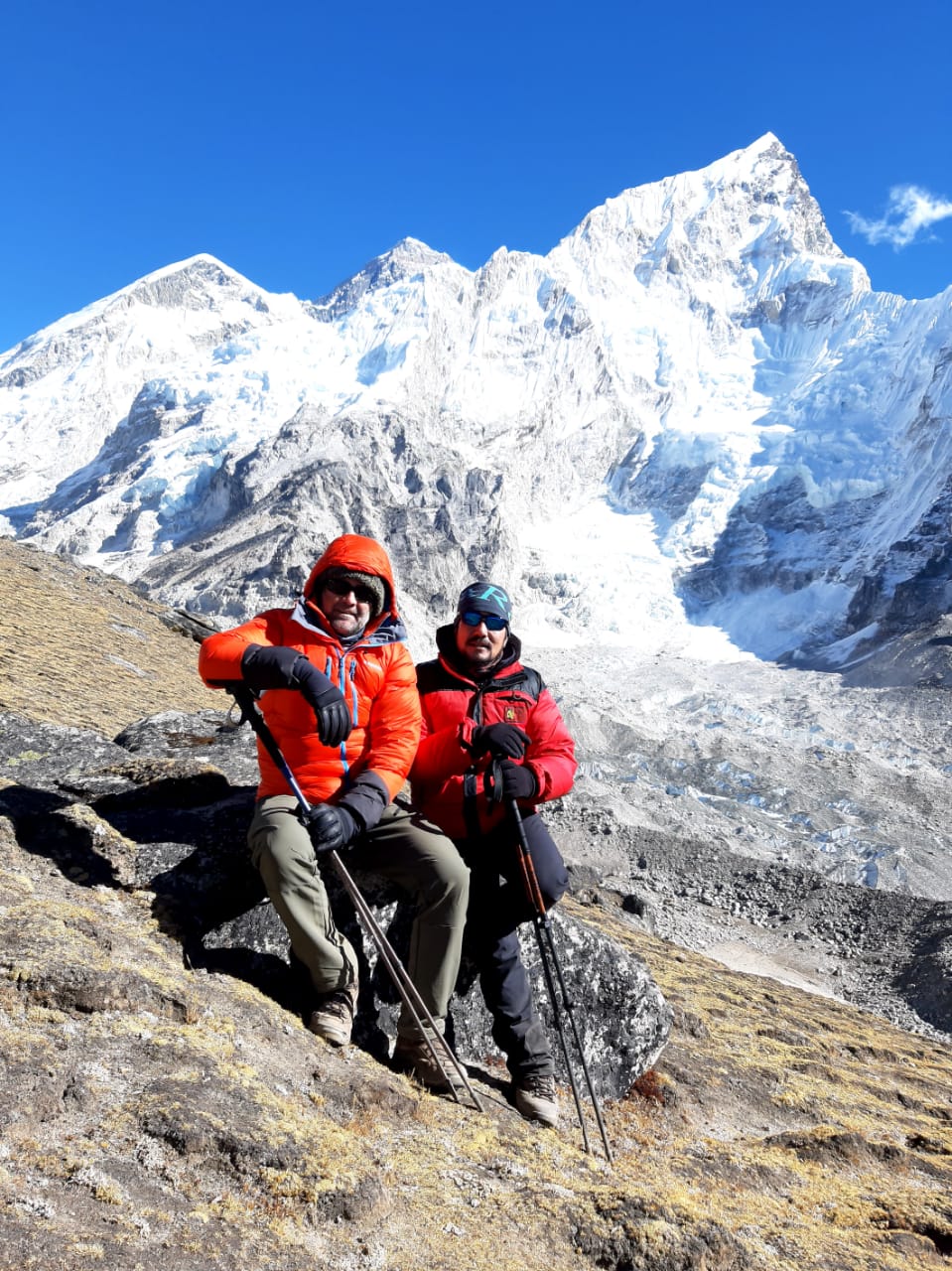
Guide To Train For Everest Base Camp Trek
Everest Base Camp Trek Difficulty Level
The trekking trails to Everest Base Camp are a bit challenging. In general, it requires two weeks to accomplish the trek. Despite the obstacles, this trek does not require any mountaineering experience. But the trails demand a good level of fitness with high endurance capacity. The challenges and obstacles that you go through pay you back with beautiful rewards.
Trek Distance (Lukla to EBC)
The Everest Base Camp trek initiates from Lukla. It is around 130 kilometres. In a standard trek, you’ll be hiking 15 km per day. Usually, it takes five kilometres per hour for a healthy person. In this regard, it may seem easy, but you’ll be marching across uneven routes at higher elevations. This slows down the pace. As a result, the trek is more challenging than you may assume.
Trek Altitude
Altitude is the main reason for the difficulty of the Everest Base Camp trek. This is why the trek is more strenuous than the other average treks. The journey advances from an altitude of 3,000 m leading towards the base camp, at 5,545 m. Altitude sickness is very likely to occur. Therefore, acclimatization is essential during the trek. More importantly, a trekker needs excellent medical knowledge about higher elevations and altitude sickness. This trek is not recommended to those who have breathing diseases.
Everest Base Camp Trek Training
The trek to Everest Base Camp is possible if an individual is well-trained physically. The trek ends nearly after two weeks. It requires the right drive to push forth and physical strength to withstand the hurdles of the trekking trails.
The majority of people assume this trek as the most challenging trek beyond their limits. Indeed, the trek is a bit tough. However, it is possible for all age groups. Everyone can face the challenges along the trek with good preparation, training and proper determination. That is why prior training is vital for this trek.
The training for the trek must enhance your ability to cope with the high altitude. You may wonder what kind of training might be best for this trek. With that in mind, the training necessary for the Everest Base Camp Trek is mentioned below:
Prior Hiking Practice
Trekking is an activity that requires walking more than a day. That is why patience is the key in trekkings. If you are not familiar with hiking, you’ll get a blister just after a day’s hike. The trek to the Everest Base camp is of 9 days hike out of 14 days. The trek demands 15 km of a hike for 6 hours per day. The route follows the rugged and rocky pathways, which are mainly ascending. Thus, it would be best to hike all along if you were fit enough.
Hiking practice is perhaps the best training for the trek. It enables your body to withstand the long-distance walk. Initially, it’s recommended to hike for at least one or two hours a day. And slowly increase the hike for four to six hours as the day passes. You can hike with your bag and boots that fulfill the trek’s standards once you’ve gotten acclimated to hiking.
Cardiovascular Training
The trek is a high altitude trek in the Everest region. Hiking at higher elevations exhausts you sooner with shortness of breath. Due to this, you need to train your body with low oxygen conditions. Cardiovascular training is the best suited for this situation. It is the exercise that helps our body cope with oxygen deficiency for a long time. This enhances your body to deal with breathlessness. Cardiovascular training is also referred to as aerobic exercise.
Jogging, swimming, cycling, rowing, etc., are examples of cardiovascular training. You can begin to train by jogging in ascending pathways for half an hour each day. And hence increase the training to 1 hour gradually for a few weeks to months. Training with body weights or your backpack enhances the fitness level drastically. Consequently, this will help you strengthen your muscles with enhanced endurance capabilities.
Strength Training (Gym Workouts)
Strengthening our body parts is a better way to make the trek more comfortable. The trekking routes in the Everest region is physically demanding. Without a doubt, strong body muscles are essential for the back-to-back hike. This is why strength training is helpful for the Everest Base Camp Trek.
There are various exercises in strength training. To enhance your lower body muscles, you can exercise with scheduled squats, deadlifts, lunges, and step-ups. Similarly, pull-ups, bench presses, and push-ups are best with the upper body workout. All this strength training should be to the point. The wrong way of training can hamper your body. In this way, strength training ensures you with an enjoyable and comfy trek.
Mental Conditioning
Trekking in the higher elevations is challenging and unpredictable. Sudden change in the weather, rain, snowfall, etc., is expected even in the best trekking season. Your body will become exhausted at times due to the earlier days of hiking along with extreme cold. In these times, a strong mentality helps you push through. And thus accomplish the trek.
Mental conditioning is necessary. However, it’s not easy to train your mental capability. Strength and endurance training is the best way to improve mental stability. An individual needs to have the right determination for the Everest Base Camp Trek. Mental strength is what matters the most. It is the only thing that drives you through the hurdles along the trek.
Ways to Avoid Altitude Sickness during EBC Trek
Altitude sickness is the major problem during the Everest Base Camp trek. If not avoided, it can be dangerous along the trek. So, the ways to avoid altitude sickness during EBC trek are mentioned under the following points:
- Avoid smoking and drinking any kind of alcoholic beverages during the trek.
- Drink a sufficient amount of water (3-4 litres) every day.
- If the sickness seems to get worse, immediately make your way down to lower elevations.
- Take medications whenever necessary.
- An experienced guide with the knowledge of high altitude plays a vital role.
- Hike at a slow pace while ascending to higher elevations.
Final Say
In conclusion, Everest Base Camp Trek requires an acceptable level of fitness with the right mindset. The trek covers a long distance at a high elevation. One needs to deal with two weeks long walk for this trek. On the other hand, walking for long days to the increasing altitude is the most challenging part. With that said, the training sessions mentioned above is helpful to deal with these challenges. Everyone can achieve this with proper preparation and training.
